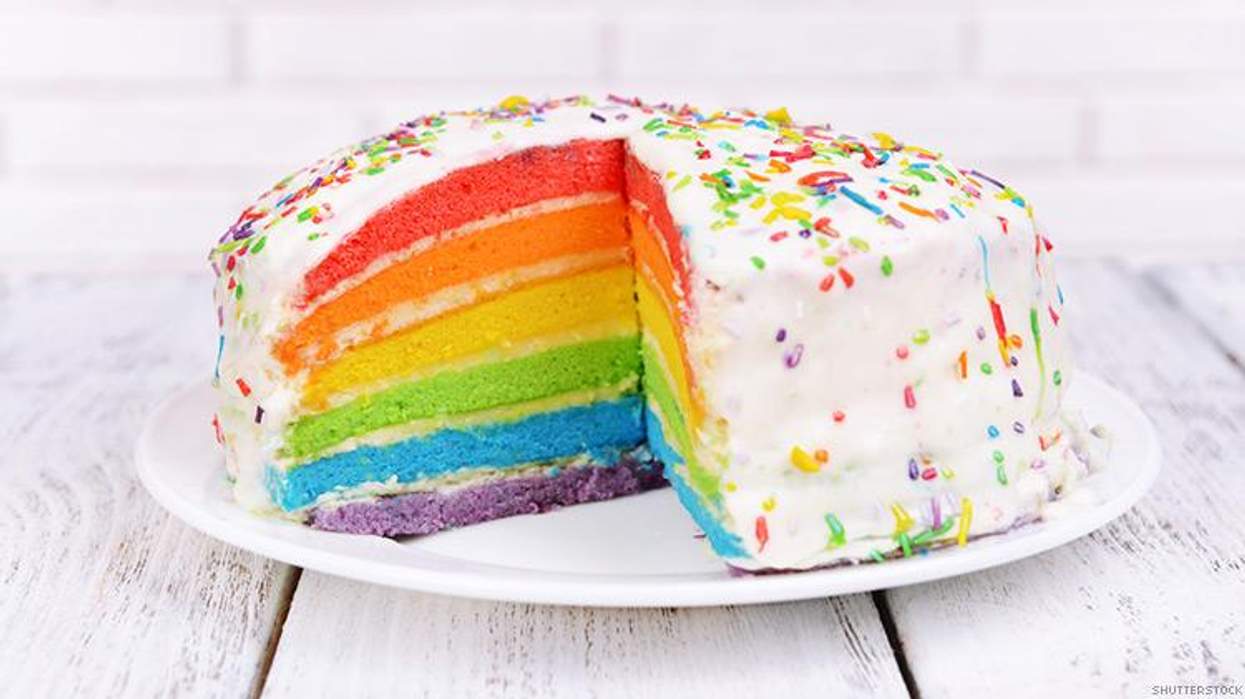For people like me, race, womanhood, and queerness are one andthe same. If the Supreme Court allows discrimination against part of me, it unequivocally allows discrimination against all of me.
Last Tuesday, the Supreme Court of the United States heard oral arguments for
Masterpiece Cakeshop v. Colorado Civil Rights Commission. It's a case about a couple being denied services by a baker because the men are a gay couple, and it's about so much more: If the Supreme Court decides for the baker, nondiscrimination laws will be immediately weakened, and more and more businesses will be able to discriminate against not just the LGBTQ community, but on the basis of race, gender, and minority religious views. A bad ruling in this case will serve as the precipitous of a slope that sets us back so far that we may never recover.
As a black queer woman, my personal identities are constantly intersecting, which makes it utterly impossible to separate. Those of us who are LGBTQ people of color are subjected to multifaceted discrimination. How can I know why someone really chooses to deny me services if the court rules in favor of the baker? Is a business refusing me service because I am queer, or is it because I am a woman, or is it because of the color of my skin? I can't truly know, and I certainly won't take the word of the business owner. The problem with this whole line of attack is that if a business can refuse to provide services to LGBTQ people by claiming it is based on their beliefs, that exception could easily be used to mask what is actually race-based discrimination.
I cannot separate my queer self from my black self, nor can anyone else separate the different parts that make us all human. Since we are all made up of intersecting identities, how would any of us know why a cake shop refused to provide a wedding cake to an LGBTQ person of color? Our identities intersect, the lines blur, and that is why Kimberle Crenshaw famously coined the concept of intersectionality; she found social identities and multiple group identities intersect to create a whole that is different from the component identities. In other words, we are all intrinsically intersectional beings.
This case is a big deal. The opposition would like to distract media and you with cake to hide their real agenda that is despicable and couched in extreme hatred of others. This case is about whether religion or speech that has a religious viewpoint can override long-standing antidiscrimination laws -- not cake. These laws were put in place to prohibit the egregious bigotry business owners historically have displayed towards people of color, women, religious minorities, and LGBTQ people.
The law in Colorado is clear: It protects people against discrimination and it prohibits businesses open to the public from discriminating against their customers on the basis of race, religion, gender, or sexual orientation. Thus a store owner or a baker can't discriminate against a person because of their sexual orientation. This is exactly what happened in this case. It's simple. A baker told a gay couple that he wouldn't bake a cake for their wedding because they are gay and his religion doesn't approve of same-sex marriage. The law was put in place to prohibit this type of discrimination.
I sincerely hope that the Supreme Court justices are able to see through the smoke and mirrors that the Alliance Defending Freedom, the anti-LGBTQ hate-group representing the baker, used in oral arguments, and instead recognize the reality that this case is nothing more than another example of the religious conservative campaign to attack and disavow same-sex marriage and protections that LGBTQ people deserve. David Mullins and Charlie Craig are real people at the center of this case who experienced real discrimination -- let's not forget that. They have rights and they deserve dignity as LGBTQ people.
As I pointed out in the National LGBTQ Task Force's
amicus brief, this case cannot be decided without paying close attention to intersectionality and lived experience. It is because of our connecting experiences that I know that members of my community will most be harmed if the justices choose corporations over individuals and allow discrimination against protected classes to become constitutionally protected.
CANDACE BOND-THERIAULT is the policy counsel for reproductive rights, health, and justice at the National LGBTQ Task Force and drafted the Task Force's amicus brief in the case. To learn more about her you can follow her on Twitter. 



































































Charlie Kirk DID say stoning gay people was the 'perfect law' — and these other heinous quotes